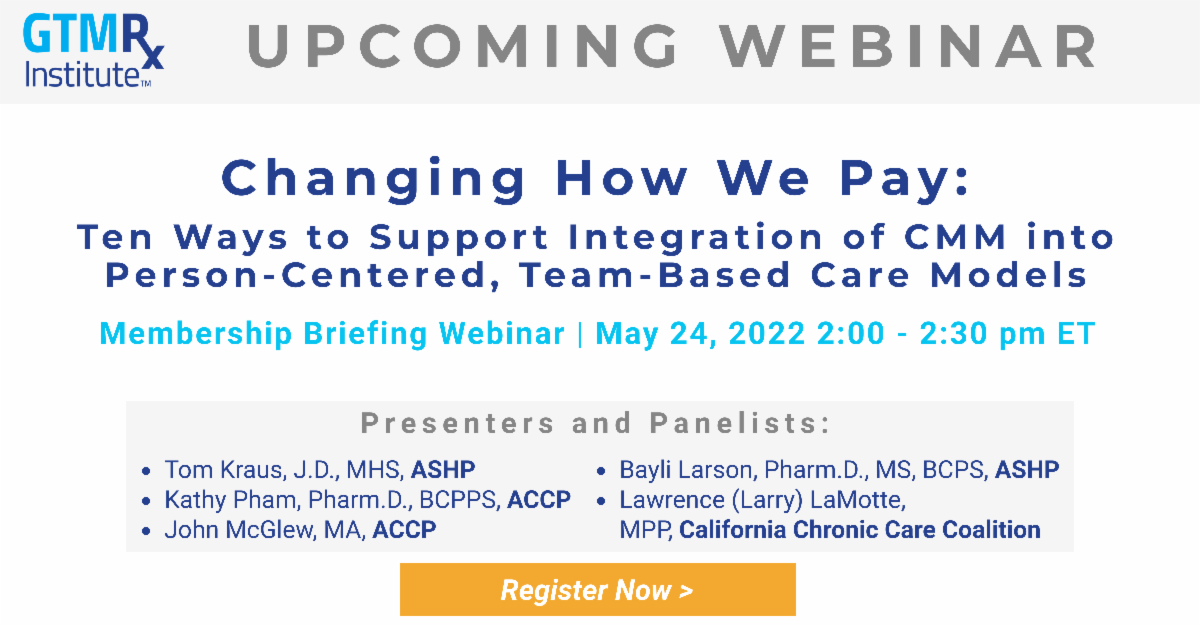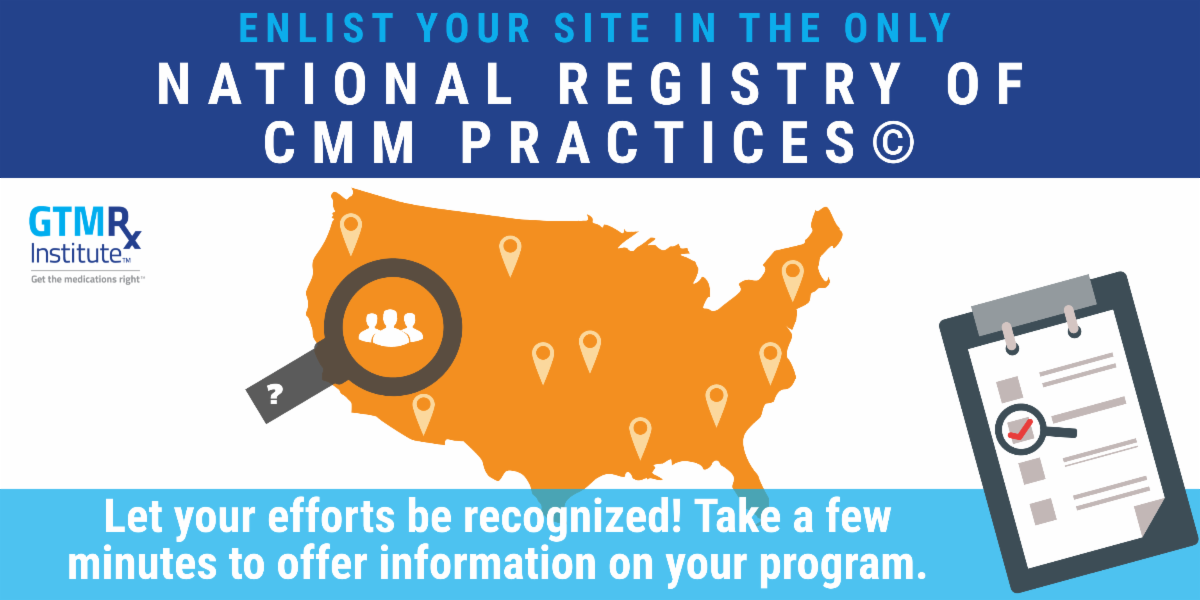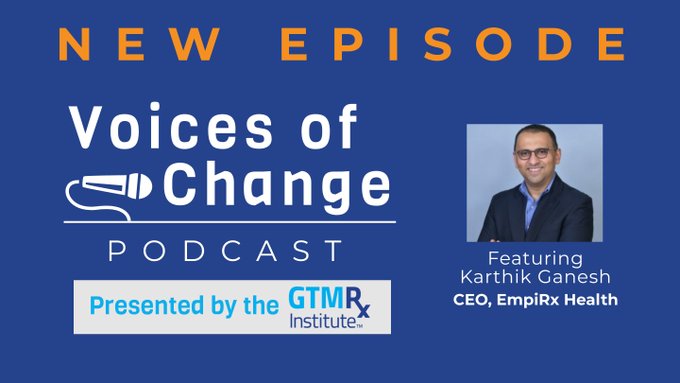Practice Transformation
Hospitals harm seniors; medication problems top cause
One in four older Americans covered by Medicare experienced some sort of harm during hospital stays in October 2018, according to a report from the HHS Office of Inspector General. About half those cases involved adverse events that led to longer stays and sometimes permanent harm or death. By far, the most common type of harm event was related to medication (43%), followed by patient care (23%), procedures and surgeries (22%) and infections (11%). Overall, 43% percent of the events were preventable and commonly linked to substandard or inadequate patient care. (USA Today; OIG report)
PGx success requires stakeholder cooperation
Pharmacogenomics are on the rise and full of opportunities for improving outcomes. However, realizing these opportunities requires collaboration and coordination among payers, pharmacists, providers and other stakeholders, according to Cynthia Yu, PharmD, director of precision medicine at The Profero Team, and Scott Betzelos, MD, CMO/VP at Blue Care Network. They shared their insights in a recent podcast. In particular, both pointed to the challenge of — and the demand for — creating an EHR that smoothly integrates pharmacogenomics data into its design. (HealthCareExecIntelligence; podcast)
Evidence & Innovation
Investing in primary care could save $2.4B
A study of eight health plans, covering 80% of commercially insured adults in California, found that if all California providers spent as much on primary care as the highest-investing health systems, they could avoid 25,000 acute hospital stays and 89,000 ED visits, and they could save $2.4 billion annually. “Increased investment and focus on primary care has the potential to provide more coordinated, cost-effective, and quality care,” according to Anthony Wright of Health Access California. “An insurance card is necessary but not sufficient: patients need a primary care provider…” (Modern Healthcare; the study; announcement)
Virtual prescribing is here to stay. What now?
Online companies prescribing and dispensing medications like Adderall are attracting scrutiny from clinicians and regulators alike. But virtual prescribing continues to expand. A key question is this: Do clinicians write more prescriptions for patients they’ve only met virtually compared with patients they’ve seen in-person? Others that must be answered include whether the patients obtaining online prescriptions are really at higher risk of misusing them, or whether virtual prescriptions present more opportunities to divert drugs. STAT takes a deep dive. (STAT News)
Policy Solutions
RAND: Employer plans pay hospitals 224% of Medicare
Private employer-sponsored health plans pay hospitals, on average, 224% of Medicare prices, in 2020, according to RAND research. Hospitals with higher market shares tended to have higher prices. “This data is really good for purchasers, who are now thinking about benefit design innovations and about prices negotiated on their behalf,” said Christopher Whaley, a RAND policy researcher and lead author of the study. “In some sense, this is a trillion-dollar market with no level of price information we are accustomed to in every other market.” (Modern Healthcare)
AARP: Medicare drug payments more than cover R&D costs
A new AARP analysis finds that the billions of dollars Medicare Part D spent over five years for the top 10 brand name prescription drugs more than covered R&D costs. AARP’s Public Policy Institute looked at total Medicare spending between 2016 and 2020 on the 10 brand name drugs that the program spent the most on in 2020. For example, Medicare spent $27.2 billion during that period to pay for Eliquis, a blood thinner; the pharmaceutical industry says the average cost to develop a new drug is $2.6 billion. (AARP)
In Case You Missed It!
GTMRx Workgroup Update
On May 12, Evelyn Hermes-DeSantis, Pharm.D., director of research and publications, phactMI and professor emerita, Ernest Mario School of Pharmacy, Rutgers, The State University of New Jersey, and Jennifer Riggins, Pharm.D., technology and partnership strategist, phactMI and medical affairs consultant, the stem and president, medical affairs and digital, JSR Medical Affairs Consulting, LLC, presented to the GTMRx Employer Advisory Taskforce on consumer surveys conducted by phactMI on medical information (e.g., where consumers search for medical information, preferences for tech platforms, how they use medical information received).
Reminder: Event TODAY from 2:00-2:30pm EST- Don’t Miss This!


Steve Chen, PharmD, GTMRx Blog: CMMI-funded pilot shows that CMM is scalable, sustainable and successful
Comprehensive medication management embedded within primary care provides a scalable and sustainable way to achieve the Quadruple Aim, says Steve Chen PharmD, FNAP, GTMRx distinguished fellow and associate dean for clinical affairs at USC School of Pharmacy, in a recent blog. He shared the results of a Center for Medicare and Medicaid Innovation (CMMI) Round 1 Healthcare Innovation Award program. “The CMMI funding allowed my team at the University of Southern California School of Pharmacy, in collaboration with AltaMed Health Services, to evaluate the impact of providing CMM services for high-risk patients. It was, in short, a success.”
See more details here.
Celebrating 3 Years of Impact: GTMRx Institute Turns 3!
The Get The Medications Right Institute (GTMRx) is celebrating 3 years of impact and advancement of our goals. Now, more than ever we remain committed and anchored in our mission and goals to:
- A personalized, patient-centered, systematic and coordinated approach to medication use will vastly improve outcomes and reduce overall health care costs.
- We must align systems of care to integrate comprehensive medication management, engaging patients to ensure that they are willing and able to take those medications that are indicated, effective, and safe, to optimize their outcomes.
- We need immediate delivery system, payment, and policy transformation to streamline clinical trials and reduce costs of bringing drugs to market while enabling successful, broad-scale adoption of integrated, comprehensive medication management (CMM) services.
- Appropriate diagnosis and access to advanced diagnostics with companion/complementary and pharmacogenetics (PGx) testing is essential to target correct therapy.
- Success requires team-based, patient-centered care models that recognize appropriately skilled clinical pharmacists as medication experts who work in collaborative practice with physicians and other providers.
Thank you to all who have joined us and aided in our mission to advance personalized, patient centered, team-based care. If you aren’t already a part of the Institute, you can join us by agreeing to our belief statements here: https://gtmr.org/become-a-signing-member/
The Right Drug Dose Now Act Introduced Feb. 28, 2022
On February 28, 2022, the GTMRx Institute issued a letter of support for the Right Drug Dose Now Act which was introduced on the same day. (See the press release from Congressman Swalwell here.)
GTMRx’s Precision Medicine Enablement via Advanced Diagnostics Workgroup invited congressional staff from the Personalized Medicine Caucus to present on draft PGx legislation underway on two occasions. The Personalized Medicine Caucus, co-chaired by Representatives Tom Emmer (R-MN) and Eric Swalwell (D-CA), engages members in a constructive dialogue about legislative and regulatory policies that can help realize the full potential of personalized medicine. The recommendations that came out of these discussions were put into our Letter to the Personalized Medicine Caucus Co-Chairs—Representatives Tom Emmer (R-MN) and Eric Swalwell (D-CA)—on the Right Drug Dose Now Act.
Some of the GTMRx recommendations to the Caucus included:
- Incorporating comprehensive medication management definition and language.
- Combining PGx testing with the CMM process of care.
- Expanding implementation of EHR guidelines, education awareness campaigns, and reporting.
- Clarifying the definition of adverse drug events.
A Comprehensive Overview of the Institute, It’s Vision, Mission and Leadership
The Get the Medications Right Institute is working to decrease misuse, overuse and underuse of medications and avoid waste by advancing comprehensive medication management to ensure appropriate and personalized use of medications and gene therapies. Learn more in this brochure.
Interested in supporting our work?
Please contact Jeff Hanson (e: [email protected])

Join us to be part of meaningful change
Irma, like many others, struggles as a result of our current trial-and-error approach to medication. That is why we advocate for a new, comprehensive approach to medication use and prescribing. As a non-profit 501(c)(3) and 501(c)(4) organization, the GTMRx Institute and Foundation relies on funding from our supporting members. We ask that you consider becoming a Supporting Signing Member so we can continue to provide relevant, timely resources to get the medications right!
If you’re interested in supporting the Institute or Foundation at a higher level, please contact us. Your dollars will bring about meaningful change for people like Irma.
AmazonSmile is an easy way for 0.5% of your qualified purchases go to the GTMRx Foundation at no cost to you. And signing up is simple—go to smile.amazon.com and select “Get the Medications Right Foundation” as your charity of choice. If you prefer to directly donate instead, you can do so here.
Adding the foundation on AmazonSmile will help us continue to provide no cost educational webinars, issue briefs, weekly news briefs and promote the need for transformation of our current system of medication use through social media campaigns.




